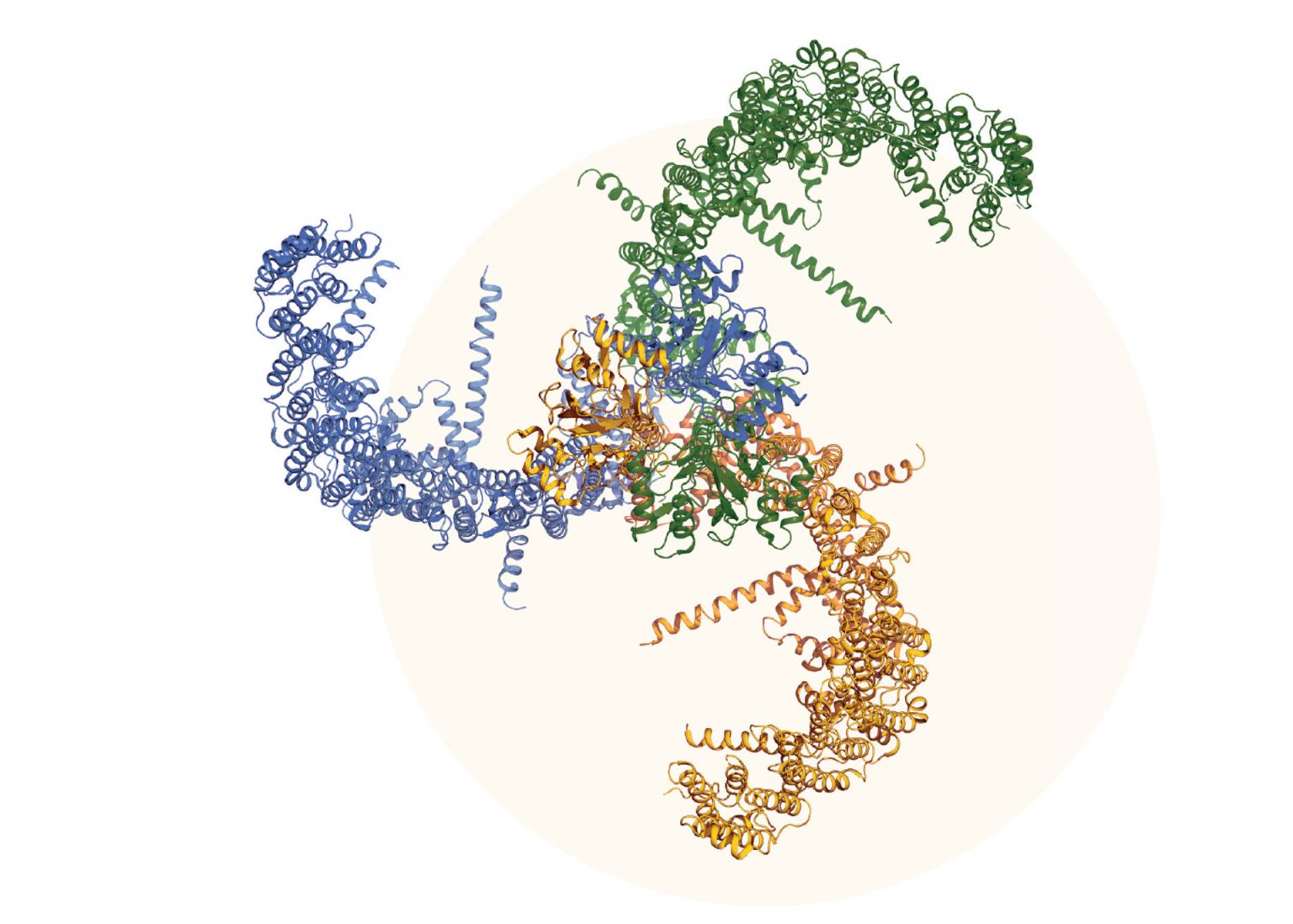Interoception is the hidden sixth sense that scientists now believe plays a vital role in how humans experience health and emotions. While most of us grow up thinking we only have five senses: sight, smell, hearing, taste, and touch, research from Scripps Research suggests there is much more to how our bodies perceive the world. This newly recognized sense doesn’t help us detect what’s happening outside, but instead allows us to feel what’s happening inside. It is quietly at work every second, monitoring our internal state and influencing our survival, emotions, and well-being.

For centuries, human understanding of the senses has centered on how we perceive our surroundings. Our eyes help us see, our ears let us hear, our nose smells, our tongue tastes, and our skin feels touch. These five senses define how we interact with the external world. But the idea of interoception introduces something revolutionary: an inner awareness system that keeps track of the body’s internal workings. It allows the brain to sense and regulate things like heartbeat, hunger, thirst, stress, and even immune responses.
This inner monitoring system is not something most people consciously feel. Yet, it constantly influences the decisions your body makes without you realizing it. For instance, when oxygen levels drop, your body instinctively makes you breathe deeper. When you’re thirsty, it urges you to drink. When you’re sick, it triggers immune responses to protect you. All of this happens automatically, thanks to interoception.
Without this sense, humans would struggle to recognize or respond to the body’s most essential needs. It acts as a communication bridge between your body and brain, making sure every organ and system stays balanced. When interoception functions properly, you remain in a state of internal harmony. But when it’s disrupted, physical or emotional problems can appear.
This incredible discovery is being led by Professor Xin Jin at Scripps Research, who oversees a $14.2 million study funded by the National Institutes of Health. Jin explains that interoception is fundamental to nearly every aspect of human health, yet it remains largely unexplored. Understanding how this hidden sense works could change how science approaches mental and physical health conditions in the future.
Nobel Prize-winning neuroscientist Ardem Patapoutian, also from Scripps Research, supports this groundbreaking work. He describes interoception as one of the least understood areas of neuroscience. According to him, scientists are only beginning to uncover how the body collects internal sensory information, how that information travels to the brain, and what the brain does with it once it arrives.
Patapoutian’s interest in sensory systems began more than a decade ago when he asked a simple but profound question: What happens to a neuron when it’s physically touched? His lab decided to find out by observing how nerve cells respond to gentle pokes using a fine glass probe. When touched, the neurons produced bursts of electrical signals, the body’s natural method of communication. This reaction hinted at the molecular machinery responsible for detecting physical sensation.
To understand this better, Patapoutian’s team began identifying the specific proteins that allow cells to react to physical pressure. These proteins, known as ion channels, act as gateways that control how cells respond to stimuli. By methodically removing them one by one, the team eventually discovered two essential proteins responsible for the sensation of touch.
They named these proteins PIEZO1 and PIEZO2. These microscopic channels turned out to be critical for sensing touch, pressure, and movement; the core elements of physical awareness. The discovery marked a breakthrough in neuroscience, offering the first glimpse into how mechanical sensations are converted into electrical signals in the body.
The most surprising finding, however, was where else these PIEZO channels were found. They weren’t limited to the skin or muscles. Scientists discovered them throughout major internal organs like the heart, lungs, stomach, and blood vessels. Even plants have similar structures in their roots, suggesting that this biological mechanism exists across many living species.

These findings opened a new scientific frontier. The Scripps team began exploring how interoception, powered by these molecular sensors, connects the body and mind. The more researchers learned, the more they realized that emotions and physical sensations are deeply linked. When you feel anxious, your chest might tighten. When you are afraid, your stomach may twist. Interoception explains these reactions; the body’s internal sensory system interprets emotional states as physical sensations.
In simple terms, interoception is the sense that lets you feel what’s happening inside you.
It monitors internal signals and sends them to your brain, helping it decide how to react. Your heartbeat, breathing rate, hunger, and fatigue levels are all under its supervision. The brain uses this constant flow of information to maintain balance and predict what your body needs next.
Researchers believe that interoception is closely tied to emotional regulation. When this system is well-tuned, you feel emotionally balanced and physically stable. But when it’s disrupted, you might experience conditions such as anxiety, depression, or chronic stress. People with heightened interoceptive awareness may notice subtle changes in their bodies earlier, helping them respond more effectively to stress or illness.
This sense also explains why humans often describe emotions using physical terms. We talk about “butterflies in the stomach,” a “heavy heart,” or “tightness in the chest.” These expressions are not purely symbolic; they reflect real bodily sensations detected through interoception. It shows how emotions are not just mental experiences but also physical ones.
Understanding interoception could have huge medical implications. Scientists believe it might play a role in disorders like anxiety, depression, and even eating disorders. For example, someone with low interoceptive awareness might not accurately recognize hunger or fullness, leading to unhealthy eating habits. Others might misinterpret normal internal signals as signs of danger, triggering panic attacks.
The research could also reshape how doctors approach treatment. If therapies could improve interoceptive awareness, patients might better regulate stress, pain, and emotional responses. Mindfulness practices, deep breathing, and meditation already aim to strengthen this internal connection, which aligns with the principles of interoception.
Professor Jin’s ongoing study aims to map the exact pathways that carry interoceptive signals from the body to the brain. By identifying the neurons responsible and understanding how they communicate, scientists hope to reveal how these processes influence both physical and mental health. This could lead to new treatments that focus not only on symptoms but also on the internal communication systems that cause them.
The concept of interoception also sheds light on the idea of “gut feelings.” Many people describe intuition as something they feel in their stomach, and science now supports this idea. When your gut tells you something feels wrong, it might not be imagination at all. It could be your interoceptive system detecting subtle changes in your body and signaling that something is off, long before your conscious mind realizes it.
This inner sense doesn’t just help with survival; it helps create emotional depth. It allows humans to connect their physical and emotional worlds in ways that shape personality, empathy, and decision-making. A well-balanced interoceptive system can make you more aware, more emotionally intelligent, and better equipped to handle life’s challenges.
Even though interoception works quietly in the background, its effects are far-reaching. It’s responsible for your body’s automatic responses, like regulating heartbeat, managing blood flow, or activating your immune system. It keeps you alive, alert, and balanced without requiring conscious thought.
The study of this sixth sense is still in its early stages, but it’s already reshaping how scientists view the connection between mind and body. It suggests that emotions, health, and physical well-being are deeply intertwined through an invisible communication network that we are only beginning to understand.
Ardem Patapoutian emphasizes that despite years of research, there’s still much to uncover. The more scientists learn about interoception, the clearer it becomes that it is as vital as sight or hearing. It helps explain why mental states influence physical health and vice versa.
So next time you feel tension in your chest during stress or a gut feeling when something seems wrong, remember that it’s not just intuition. It’s your interoceptive system doing what it was designed to do: keeping you safe, balanced, and in tune with your body. This hidden sixth sense is not mystical but deeply biological, showing that the human body and mind are far more connected than anyone ever imagined.
